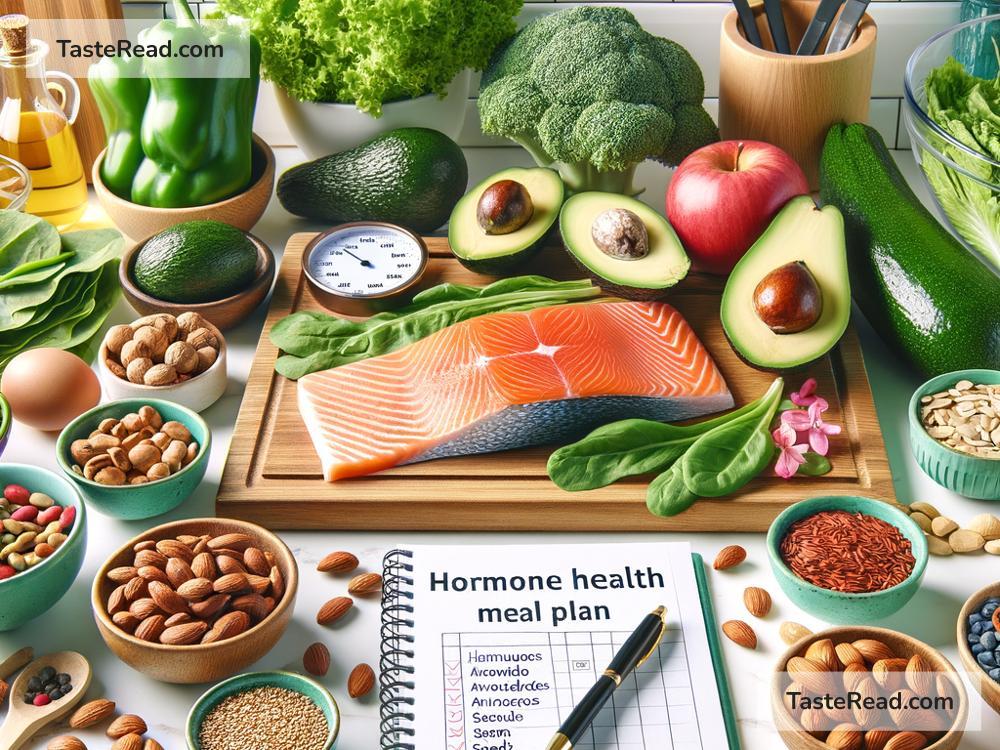The Connection Between Diet and Hormone Health: Explained Simply
Hormones play a vital role in regulating how our bodies function. From energy levels and mood to digestion and sleep, they act as messengers that help different systems in the body work smoothly. But did you know that the food we eat can have a big impact on our hormone health? That’s right—our diet is closely tied to how our hormones work! In this article, we’ll explore the relationship between diet and hormone health in simple terms.
What Are Hormones, and Why Are They Important?
Hormones are chemicals that our body produces naturally. They are released by glands, like the thyroid, adrenal, and pancreas, and travel through our bloodstream to send messages to various parts of the body. Hormones control a lot of important processes, such as:
– Growth and development
– Metabolism (how your body uses energy from food)
– Mood and emotions
– Reproduction and fertility
– Sleep and wake cycles
When hormones are balanced, your body works as it should. But if hormone levels become too high or too low, problems can occur. Imbalanced hormones might lead to issues like fatigue, weight gain, acne, mood swings, or irregular menstrual cycles.
How Diet Affects Hormones
The foods you eat provide the building blocks for many hormones, so it’s no surprise that diet plays a key role in maintaining hormone balance. Here’s how:
1. Blood Sugar Levels and Insulin
Your blood sugar levels rise and fall based on the amount and type of carbohydrates you consume. When you eat sugary or processed foods, your blood sugar can spike, which triggers the release of insulin, a hormone that helps regulate blood sugar. Over time, constantly high insulin levels can lead to insulin resistance, a condition where your body stops responding properly to insulin. This can disrupt hormone balance and increase your risk of conditions like diabetes and PCOS (polycystic ovary syndrome).
To keep your blood sugar stable, choose whole, unprocessed foods, like fruits, vegetables, whole grains, and lean proteins. Avoiding too much sugar and refined carbs can help your hormones stay balanced.
2. Healthy Fats for Hormone Production
Hormones like estrogen, progesterone, and testosterone are made from cholesterol and fat. Eating healthy fats, like those found in avocados, nuts, seeds, olive oil, and fatty fish, provides the essential nutrients your body needs to produce these hormones.
On the other hand, consuming too many unhealthy fats, like trans fats found in fried foods and baked goods, can lead to inflammation and hormone disruption. Aim for a diet rich in heart-healthy fats to support hormone production.
3. Gut Health and Hormones
Did you know that your gut and hormones are connected? Your gut houses trillions of bacteria, collectively known as the microbiome, which play a key role in hormone regulation. A healthy gut microbiome helps metabolize and balance hormones, while an unhealthy gut can contribute to hormone imbalances.
To keep your gut healthy, eat plenty of fiber-rich foods like fruits, vegetables, and legumes. Fermented foods like yogurt, kefir, and sauerkraut can also provide probiotics, which are beneficial bacteria for gut health.
4. Stress and Cortisol Levels
When you’re stressed, your body releases cortisol, often called the “stress hormone.” While cortisol is helpful in small amounts (it helps you respond to immediate danger), chronic stress can lead to excessive cortisol levels. This can affect other hormones and lead to fatigue, weight gain, and low immunity.
Certain foods can help manage stress and cortisol. For example, magnesium-rich foods like spinach, almonds, and dark chocolate can help your body relax. Herbal teas like chamomile may also support stress relief.
5. Nutrients That Support Hormone Functions
Specific vitamins and minerals are essential for hormone health. For example:
– Vitamin D helps regulate estrogen and testosterone. You can get it from sunlight, fatty fish, eggs, and fortified foods like milk.
– Zinc supports thyroid hormone production. Foods high in zinc include pumpkin seeds, shellfish, and beef.
– Vitamin B6 helps with the production of serotonin, a feel-good hormone. It’s found in foods like bananas, poultry, and chickpeas.
Eating a well-rounded diet with these nutrients can make a big difference in hormone health.
Foods to Avoid for Hormone Health
While some foods can improve hormone balance, others can throw it off course. Try to limit:
– Sugary foods: Processed snacks and drinks with added sugar cause insulin spikes.
– Highly processed foods: Packaged meals often lack nutrients and contain harmful additives.
– Alcohol: Too much alcohol can disrupt hormone production and damage your liver, which plays a role in metabolizing hormones.
– Caffeine: In large amounts, caffeine can worsen stress and mess with cortisol production.
Simple Steps to Eating for Healthy Hormones
Maintaining hormone health doesn’t have to be complicated. Here are a few easy tips to get started:
1. Eat a variety of whole foods, including fresh fruits, vegetables, lean proteins, and healthy fats.
2. Avoid sugary, processed, and fried foods.
3. Stay hydrated—drink plenty of water throughout the day.
4. Get active: Physical activity also supports hormone regulation.
5. Manage stress with relaxation techniques like yoga, meditation, or deep breathing.
Final Thoughts
Your diet and hormone health are closely linked. By choosing the right foods and avoiding the harmful ones, you can support your body’s natural hormone balance. Remember, small, consistent changes to your eating habits can lead to big improvements in your overall health.
If you’re struggling with hormone-related issues and suspect your diet might be part of the problem, consider speaking to a healthcare professional or nutritionist. They can guide you in making adjustments to better support your hormone health.
Eating well isn’t just about looking good—it’s about feeling good and giving your body what it needs to thrive!


